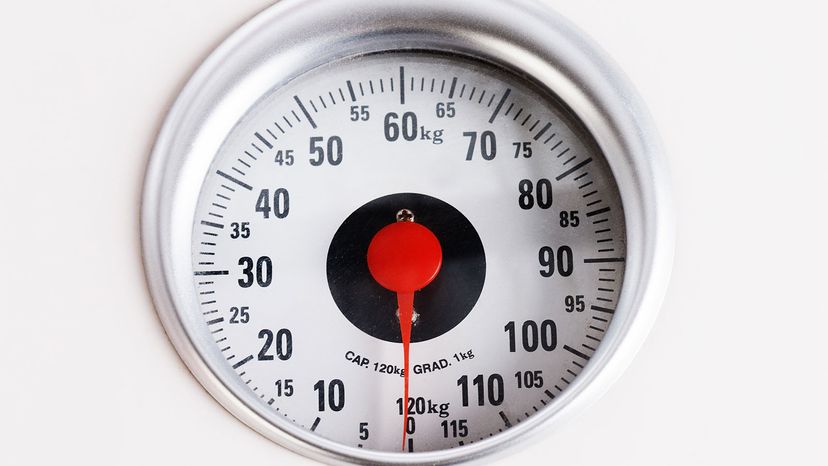Here's an important figure to remember (if you can): 2.2046
See, 1 kilogram is equal to 2.2046 pounds. So, to make a conversion between the two measurements, you'll need to use this number.
Let's say your Canadian friend Bob tells you his dog Rex weighs 34 kilograms. What does that mean in terms of pounds?
Unfortunately, the formula isn't quite as simple as just taking the relevant amount of kilograms and multiplying it by 2.2046. But don't worry; it's still pretty darn simple.
First, we must write down two separate fractions: 34 kilograms divided by 1 and 2.2046 pounds divided by 1 kilogram. Then, we'll have to multiply the former by the latter.
Here's what that equation looks like when expressed numerically:
(34 kilograms/1) x (2.2046 pounds/1 kilogram)
The division by 1 might seem pointless. But we need it to do our conversion. Note that the "kilograms" notations in those two fractions will cancel each other out. But the "pounds" notation? That's not going anywhere. Ergo, we're left with:
(34/1) x (2.2046 pounds/1)
Like they taught us in grade school, a number divided by 1 equals itself. With this knowledge in mind, we can now rewrite our equation like so:
34 x 2.2046 pounds = 74.96 pounds
Therefore: 34 kilograms is equal to 74.96 pounds, or 75 pounds, rounded up.
Yeah, it's probably safe to assume Rex isn't lap dog material ...

